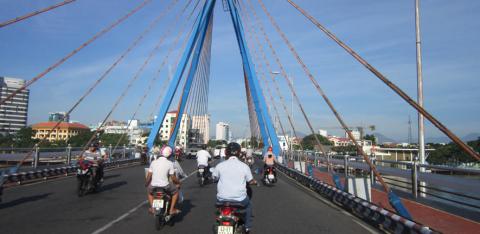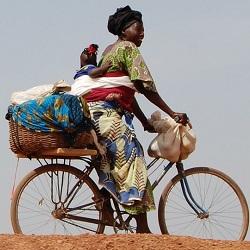Description

The MPhil in Development Studies provides an inter-disciplinary training whose content and style have kept abreast with the changing reality of development concerns, and the changing requirements of those seeking to make a career in the development field.
The course gives its students a firm grounding in political economics relevant to development, including the study of sociology, political science, law, economics and anthropology. We have close links with the other area centres within POLIS: African Studies, Latin American Studies and South Asian Studies which helps offer students a comparative lens.
The inter-disciplinary approach is based on the recognition that together with the analytical rigour required of social scientists today, no important issue in development — poverty and inequality, population growth, the construction of the institutions, war and human rights, democratisation — can be properly understood without an inter-disciplinary perspective.
The MPhil in Development Studies provides a framework within which students can construct a pathway suited to a wide range of differing interests and needs. Those for whom the MPhil represents a one-year preparation for a career in development policy can select a broad inter-disciplinary set of subjects, while those who wish to continue their studies at the doctoral level can select a more specialised set of options concentrating on the analytical tools of their subject, and discover which university department or faculty is most suited to their research plans.
Course Structure
The MPhil course consists of one compulsory core paper ‘Intellectual traditions of Development’, two modules selected from a range of optional papers and a 20,000 word dissertation.
-The core paper is collectively taught by lecturers within the Centre of Development Studies and is offered in Michaelmas Term. It covers major approaches and themes in development thinking and practice.
- In Lent Term, students will choose two out of the 6-8 optional papers (capped at 25 students each) which will provide a ‘deeper dive’ into some the themes and topics introduced in the core paper.
-Students will apply to the course with a dissertation proposal and will submit a 20,000 word dissertation towards the end of Easter Term.
All students will write two 5,000 word essays. For the first essay, due at the beginning of Lent term, students will be able to choose from a wide range of questions based on topics covered in the core paper. For the second essay, due at the beginning of Easter term, students will be able to select one topic from a range of questions based on the optional papers.
Research carried out for the purpose of the dissertation must receive ethical approval by the Ethics Committee prior to the student commencing research otherwise the dissertation cannot be accepted.
Core Paper: Intellectual Traditions of Development
The Core Paper ‘Intellectual Traditions of Development’ will be offered in the Michaelmas term and will cover major theoretical and methodological approaches in the field of development studies. It will offer students the opportunity to learn about cutting edge scholarship and debates in development thinking and practice. Its main building blocks will include lectures around:
Colonial and Imperial Beginnings
International Trade, Globalization, and Development
The Changing Role of the State in Development
Development and Technological Change
Conflict and Development
Civil Society and Social Movements
Food Security
Gender and Development
Education Systems and Implications for Knowledge Production
Development Out of the Ordinary
Cities and Development
Indicative Reading List
Amanor, Kojo (2019) Global Value Chains and Agribusiness in Africa: Upgrading or Capturing Smallholder Production? Agrarian South: Journal of Political Economy 8(1-2): 30-63.Jeffrey Herbst. (2000). States and Power in Africa: Comparative Lessons in Authority and Control. Princeton, New Jersey: Princeton University Press.
Balcells, L. and Kalyvas, S. (2014). Does Warfare Matter? Severity, Duration, and Outcomes of Civil Wars. Journal of Conflict Resolution, 58(8): 1390-1418.
Branch, A., and Mampilly, Z. (2015). Africa Uprising: Popular Protest and Political Change. London: Zed Books.
Chandhoke, Neera (1995) State and Civil Society: Explorations in Political Theory. Delhi: Sage Publications.
Clapp, Jennifer and S. Ryan Isakson (2018) “What is the Link Between Food and Finance?” In Speculative Harvests: Financialization, Food and Agriculture. Manitoba: Fernwood Publishing. (pp. 1 -28)
Davis, A. Y. (2012). The Meaning of Freedom: And other Difficult Dialogues. City Lights Publishers.
De Sousa Santos, B. (2014) Epistemologies of the South: Justice against epistemicide. London: Routledge.
Engels, F. (1985). Condition of the Working Class in England. W.W. Norton.
Gallagher, K. P. and Kozul-Wright, R. (2022). The Case for a New Bretton Woods. Cambridge: Polity Press.
Gready, P and Robins, S. (2017) Rethinking civil society and transitional justice: lessons from social movements and ‘new’ civil society. The International Journal of Human Rights, 21(7):956-975.
Hauge, J. (2021). Manufacturing-led development in the digital age: how power trumps technology. Third World Quarterly (online first).
Hickel, Jason (2017) The Divide. (Chapter 3)
Kabir, N Reversed Realities (1994) Gender Hierarchies in Development Thought Verso
Logan, Amanda (2016) “Why Can’t People Feed Themselves?” Archaeology as Alternative Archive of Food Security in Banda, Ghana. American Anthropologist 118(3): 508-524.
Mamdani, M (2018) Citizen and Subject: Contemporary Africa and the Legacy of Late Colonialism. Princeton University Press
McMichael, Philip and Mindi Schneider (2011) Food Security Politics and the Millennium Development Goals. Third World Quarterly 32(1): 119-139.
Roberts, A. and Lamp, N. (2021). Six Faces of Globalization: Who Wins, Who Loses, and Why it Matters. Cambridge (MA): Harvard University Press.
Rodney, W. (2018). How Europe Underdeveloped Africa. Verso Books.
Rosenberg, N. (1982). Inside the Black Box: Technology and Economics. Cambridge and New York: Cambridge University Press.
Roy, A. (2009). Why India cannot plan its cities: Informality, insurgence and the idiom of urbanization. Planning theory, 8(1), 76-87.
Scott, James C. (2010). The Art of Not Being Governed: An Anarchist History of Upland Southeast Asia. New Haven, Connecticut: Yale University Press.
UNESCO. (2021) Global education monitoring report: Non-state actors in education.
Option Papers
Six to eight option papers will be offered during the Lent Term. The papers will offer students choice and the opportunity to go more in-depth into specialised topics in development studies, introduced in the Core Paper the previous term.
Food, Technology, and Development
Kimura, Aya Hirata (2013) Hidden Hunger: Gender and the Politics of Smarter Foods. Ithaca: Cornell UP.
Patel, Raj (2013) The Long Green Revolution. Journal of Peasant Studies 40(1): 1–63.
Rock, Joeva (2022) We are not starving: The Struggle for Food Sovereignty in Ghana. East Lansing: Michigan State University Press.
Protest, Violence and Development
Crost, B., Felter, J., & Johnston, P. (2014). Aid under fire: Development projects and civil conflict. American Economic Review, 104(6), 1833-56.
Enos, R. et al. (2019). Can Violent Protest Change Local Policy Support? Evidence from the Aftermath of the 1992 Los Angeles Riot. American Political Science Review, 113(4), 1012-1028.
Political Economy of Money and Finance in Development
Alami, I. (2019). Money Power and Financial Capital in Emerging Markets: Facing the Liquidity Tsunami. London: Routledge.
Banks, G., & Overton, J. (2022). Grounding financialisation: Development, inclusion, and agency. Area, 54(2), 168-175.
Development Economics
Chang, H-J. (2014). Economics: The User’s Guide. New York and London: Pelican Books.
Hickel, J. (2017). The Divide: A Brief Guide to Global Inequality and Its Solutions. New York and London: Penguin Random House.
South Asia: Economic Development and Social Transformation
Kohli, A., 2012. State Directed Development: Political Power and Industrialization in the Global Periphery, Cambridge University Press
1 Gould, W., 2012. Religion and Conflict in Modern South Asia, Cambridge University Press.
Inequality and Everyday Life
Khan, S. (2010). Privilege: The Making of an Adolescent Elite at St. Paul's School. Princeton: Princeton University Press.
Denyer Willis, G. (2021). Mundane disappearance: The politics of letting disappear in Brazil. Economy and Society, 50(2), 297-321.
Queries?
If you have any further questions, please feel free to email the Centre Administrator on admin@devstudies.cam.ac.uk.

